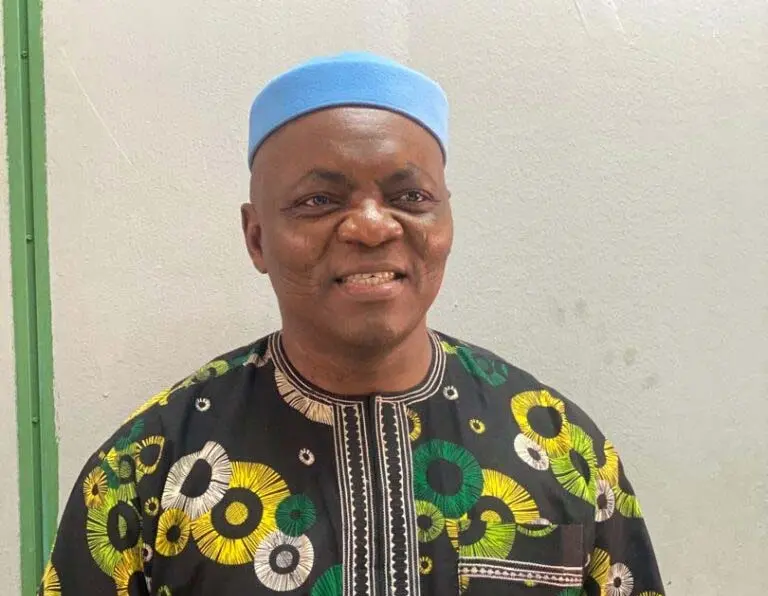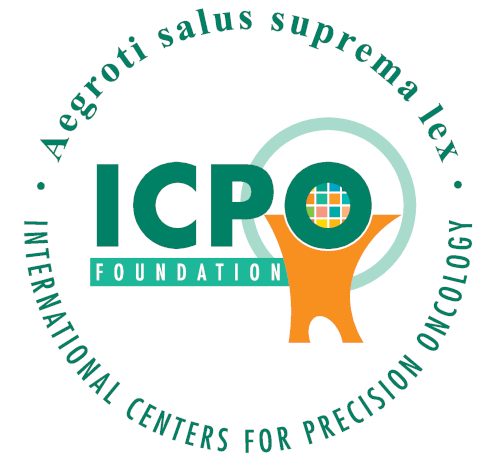
We Need To Rethink Indigenous Medicine, Experts tell Federal Govt
As Nigeria joins the rest of the world to mark the World Health Day, pharmacists in the country have urged the federal government to make local drug production a priority.
The director-general, Nigeria Natural Medicine Development Agency (NNMDA) Prof. Martins Emeje, said President Bola Tinubu should be talking about cutting down the import of foreign drugs, adding that the country has the infrastructure and human capital to produce drugs locally.
He called for change of strategy, saying that the strategy that the country has been using since the colonial time is what it is still using.
The DG told LEADERSHIP Sunday that the country cannot achieve a change in outcome if it continues with the same strategy, which he described as dependence on importation of pharmaceuticals.
“That is what we have been doing over the years. We depend on support from other countries. It is either our pharmaceutical sector is importing finished products or we import raw materials and just package the dosage form here without necessarily doing any basic research and development or even local drug manufacturing.
“The problem is lack of investment in our own local development, local drug manufacturing, local research and development and manufacturing, and that is because we are not looking inward. We must support local drug research and development and local drug manufacturing.
“We don’t have a problem of human capital. We have over 300 research institutes in this country and I can tell you that they are headed by competent researchers. But at home here, we are not making headway because of the support that is needed from government and the private sector,” he explained.
Prof. Emeje stressed the need to rethink indigenous medicines, saying that the country must begin to make it a priority.
READ ALSO: Tinubu To Issue Executive Order Slashing Medicine Costs, Boosting Local Drug Manufacturing
However, he said that the Nigeria Natural Medicine Development Agency is working towards establishing herbal medicine centers in all the 774 local governments in the country, adding that the agency was already developing a database of all traditional medicine practitioners in the country and the type of products and services they render, for comprehensive documentation.
“We are starting it already with Alimosho local government. “It’s a N500billion project that we are starting with Alimosho local government and we are going to use that as a pilot and escalate it to the rest of the country.”
Also, the manufacturing pharmaceutical companies have called on the government to provide ‘patient capital’ to boost local production of drugs.
Pharmacists who spoke with LEADERSHIP Sunday averred that Nigeria is currently producing about 20 per cent of the nation’s drug requirement, with about 70 per cent imported, adding that most of the drugs produced locally are the basic drugs, not the high tech products.
While the Tinubu-led administration has stated that they want to flip the ratio of drug importation around, to enable the country to produce more locally than import, the CEO of Neimeth, Valentine Okelu, said this can only be possible if the challenges in the pharmaceutical industry are being tackled.
According to Okelu, the first challenge has to do with infrastructure which include power.
“Pharmaceutical production is energy intensive. People don’t understand the amount of resources required to power a pharmaceutical plant. For instance, it requires about 1000KVA generator to power some pharmaceutical factories.
“To cut costs, we make use of public energy supply and generator. “We try to produce like 50 per cent of drugs, using electricity and the other 50 per cent of drug production, using generator,” he explained.
On the increase of electricity tariff, Neimeth’s CEO averred that it will even make local manufacturing more difficult, in that, the cost of producing drugs may double. He however affirmed that the increase in electricity tariff, will only affect drugs that are produced locally, adding that imported drugs will not be affected.
“What this means is that the federal government’s plan of boosting local production of drugs may be affected, considering the fact that the price of locally produced drugs may be almost the same with those imported,” he posited, while calling on government to halt its plans to increase electricity tariff.
He also appealed to the federal government to provide what he called ‘patient capital’ for the pharmaceutical industry.
“Patient capital is capital that can wait for a long time, with little or no interest. This is needed because the pharmaceutical industry is not like any other industries where one can get return on investment in a year.
“We need approval at every point in time, from setting up the factory, production, to start producing for the masses and then also get approval to export. The approval for each stage takes time.”
He said, “I will also appeal to the government to ensure that locally produced drugs are the ones procured in all state and tertiary hospitals. Government has put in place the Drug Revolving Scheme for the procurement of drugs at public hospitals. But it is sad to note that most of the drugs are procured from India and China. This has to stop if we must boost local production of drugs.
“I will appeal to the federal government to start procuring locally made drugs to boost the industry and also remit the fund on time, so that the pharmaceutical manufacturing companies can have enough money to use for production,” he recommended.
The president, Association of Medical Laboratory Scientists of Nigeria (AMLSN), Dr. Casmir Ifeanyi, faulted the four point agenda of the coordinating minister of Health and Social Welfare, Prof. Mohammed Ali Pate, citing neglect of medical laboratory scientists.
Dr Ifeanyi said that the minister has not been able to coordinate laboratory services in the four point agenda, you cannot find a place of medical laboratory services.
He told LEADERSHIP Sunday that what determines the state of a country’s health system is the state of its medical laboratory science services, adding that the reason Nigeria has not been able to get it right is due to lack of medical laboratory science services.
He said, “We had what was known as Federal Laboratory Services. It provided structure from medical laboratory services delivery in Nigeria. Unfortunately, and due to misplaced priority and politics, we scuttled the Medical Laboratory Science Services in Nigeria.
“Ever since we scuttled it, our health system has continued to nosedive and we have continued to occupy the lowest part of health indeces in global health ranking.”
He commended President Bola Tinubu for coming forth and showing that he is committed to improving the health system of Nigeria.
“On behalf of all medical laboratory scientists in Nigeria, I commend president Bola Tinubu for the giant step he has taken in the heath sector.,” he added.
On his part, the chairman, Public Health Sustainable Advocacy Initiative (PHSAI), Barrister Ayo Adebusoye tasked the government on Universal Health Coverage (UHC) for all Nigerians, irrespective of their location.
To achieve this, Adebusoye said government has to begin to put its money where its mouth is, adding that, “We need to go back to the Abuja declaration of 15 per cent health budget, if we must achieve good health for all Nigerians.
“So, we need the health system to be driven, not at the federal level, but at the state and local government area levels. Federal government should focus on formulating policies, but the implementation of those policies should be at the state and local government levels.”
On health insurance, Adebusoye said health insurance is also another gateway to achieve UHC, while encouraging the government to set up a council that will manage the Vulnerable Group Fund (VGF) as stipulated it the National Health Authority Act 2022.
“There is supposed to be a governing council that should be instituted to manage the vulnerable fund. The council will manage the modalities on how and where the fund should go. “If that council is not instituted, then we won’t be able to achieve UHC for all Nigerians,” he stated.
On brain drain, he tasked the government to improve the renumeration of healthcare workers to stem brain drain in the country, as they cannot operate like other civil servants.
“I know government can revamp the health sector, but it takes political will. “I appeal to the government to put all the recommendations as highlighted above, to achieve UHC for all,” he stated.
In the same vein, the lead director, Center for Social Justice (CSJ), Onyekepere Eze, said the full implementation of the basic health care provision fund and the complete resuscitation of primary health care centers throughout the Federation should be prioritized by the government.
Eze repeatedly emphasizes the need for accountability while pleading with the federal government to give PHC, a high priority, which is a step towards UHC.

Ethel Purdy – Medical Blogger & Pharmacist
Bridging the world of wellness and science, Ethel Purdy is a professional voice in healthcare with a passion for sharing knowledge. At 36, she stands at the confluence of medical expertise and the written word, holding a pharmacy degree acquired under the rigorous education systems of Germany and Estonia.
Her pursuit of medicine was fueled by a desire to understand the intricacies of human health and to contribute to the community’s understanding of it. Transitioning seamlessly into the realm of blogging, Ethel has found a platform to demystify complex medical concepts for the everyday reader.
Ethel’s commitment to the world of medicine extends beyond her professional life into a personal commitment to health and wellness. Her hobbies reflect this dedication, often involving research on the latest medical advances, participating in wellness communities, and exploring the vast and varied dimensions of health.
Join Ethel as she distills her pharmaceutical knowledge into accessible wisdom, fostering an environment where science meets lifestyle and everyone is invited to learn. Whether you’re looking for insights into the latest health trends or trustworthy medical advice, Ethel’s blog is your gateway to the nexus of healthcare and daily living.



